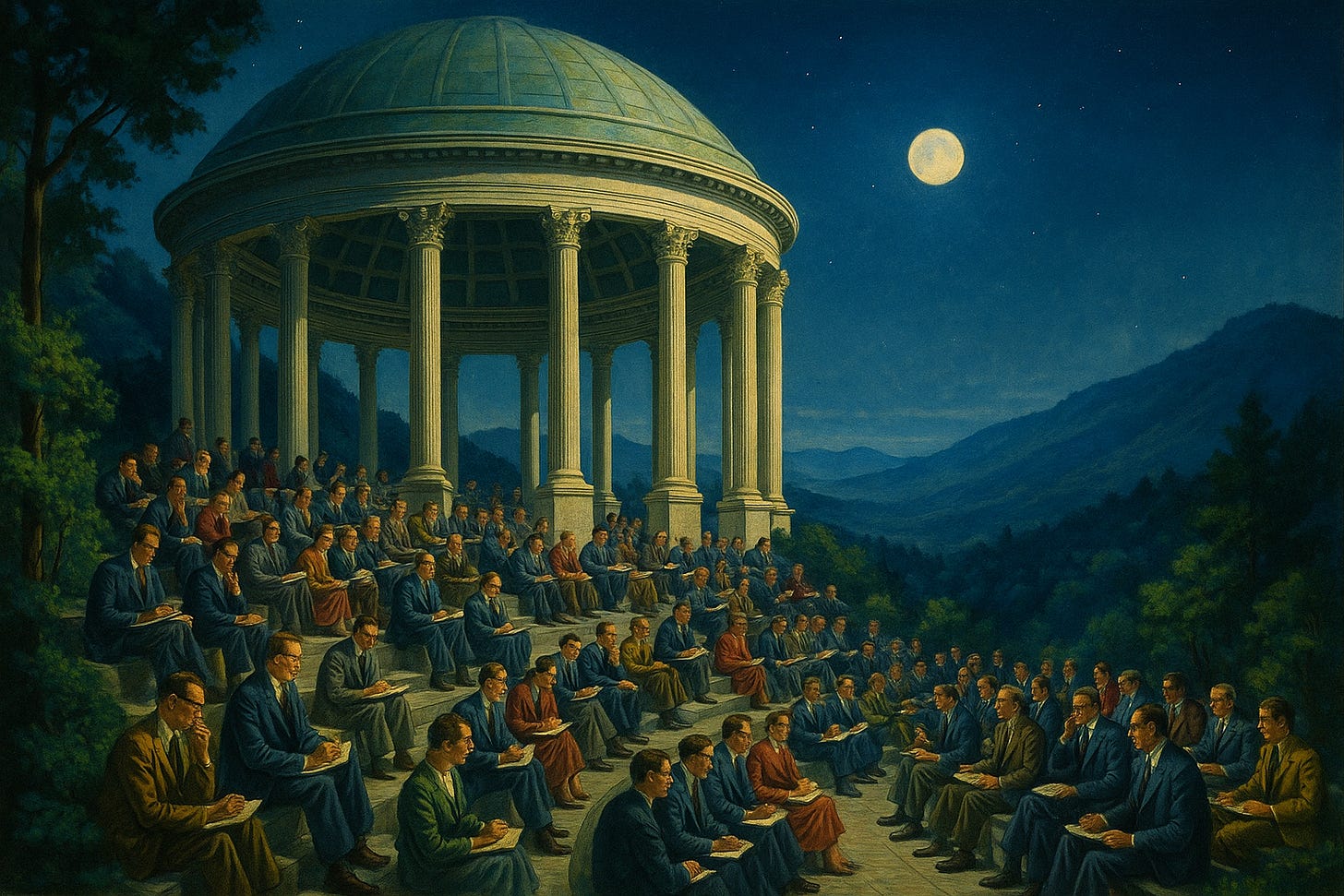On Quality
How the Gentleman Scientist should spend his time
Throughout history, it can be observed that every society contains an elite. It is almost invariably the case that this elite is defined by actual or perceived excellence. This is a lesson that all would be reactionary intellectuals of the Internet should pay attention to very closely. Too many of these thinkers devote all their efforts almost wholly to politics, and their efforts often decay into predictable pablum, closely approximating the work of their compatriots. Worse yet, their deep experience uncovering the twisted depths of the Monoculture has led them to distrust even patently objective truth, leading them into a perilous pit of pseudoscience and superstition. It is therefore unsurprising that much independent thought of the past two decades can be criticized by the intellectual establishment as the ravings of crackpots and madmen.
The solution to this problem is to become an expert. While much ink has been spilled on the subject of politics, the task ahead concerns a far greater portion of academic endeavor. The more serious problem of our time is the slow degradation of those purportedly apolitical institutions critical to our civilization; the birder’s clubs, the computing societies, the historical associations. What has not atrophied entirely has been redirected to dubious political ends. It is in fact movements within these organizations, not any political entity, that has lead to the slow promulgation of unbidden cultural change. Therefore, what is needed is a complete reconstruction of the premodern academic edifice; the rebuilding of the system that existed at the beginning of the twentieth century. For a well described case study of these changes, read From Bauhaus to Our House by Tom Wolfe. Lessons learned here can be applied to almost any other area of culture. While it is not feasible to create a parallel university overnight, there would be immense progress in the conduct of science if even twenty percent of the educated class changed how they spent their recreational hours from the idle pursuit of television and video games to the study of the universe. To this end I ask all readers of this publication to pick an area of scientific investigation and pursue it for at least one hour each day.
There are many available resources for doing so. The United States government has generated enormous sums of data over the past half century, much of which is available over the internet. To examine such data, one must only apply the rudiments of statistics and data analysis thereto. The Gentleman Scientist need not be wealthy, he must only possess a keen intellect and an eye for new data. There is no need to begin your efforts in controversial fields. Why leave the study of Cepheid variable stars to a small coterie of cloistered experts? Your data science skills can certainly be put to good use here. In fact, all you need to contribute successfully to science is a dataset, an understanding of statistical principles, and some rudimentary knowledge of a high-level programming language such as R or Python.
Your success in a solid, if rather mundane field will prepare you well, if you are to set forth into more perilous waters. If you are to make a claim within a controversial field, it is best to do so with a proven track record of success in a “safe” one. We independent thinkers must show through academic excellence that we are not the Neanderthals our opponents presume us to be. It is commonly assumed that all higher thought would cease without the careful tending of the universities with large sums of taxpayer dollars. The more Gentleman Scientists there are, the more this hypothesis is refuted. An interest in pure science immediately identifies you as on the same level as the elite.
A leaner and more daring method of operation must be restored, unbound by the dictates of a late imperial bureaucracy, but subject to the necessary scrutiny of replication. Given the severity of the reproducibility crisis, it should not be difficult to create a learned society that publishes results with a higher degree of accuracy than the academic establishment. Another easy advantage to seize is to read. By reading, I do not mean only to review contemporary literature, but to open long-forgotten tomes from the nineteenth century, to read deep volumes containing decades of forbidden research. Is it not surprising that the salami-slicing of results into easily digestible papers has lead to a dearth of scientific advancement? The purported thought leaders of today consume and produce interchangeable text blocks at most ten pages long.
The foundation of the next Heroic Age of Invention shall therefore be built upon those intrepid pioneers who struck out beyond the walls of the ivory tower. The more Gentleman Scientists there are, the stronger their institutions become, and will soon surpass those of the decrepit monoculture. While there are at this time a decent number of scientists working outside the confines of academia, there is as yet little coordination among them. They work in a scattered set of controversial fields, and would return to organized academia if they could. Therefore, the next step will be to develop comprehensive coverage of different areas of academic endeavor. This has already occurred to a limited extent within mathematics. Freed from the arbitrary chains of a sclerotic bureaucracy, there is no telling what can be done...


